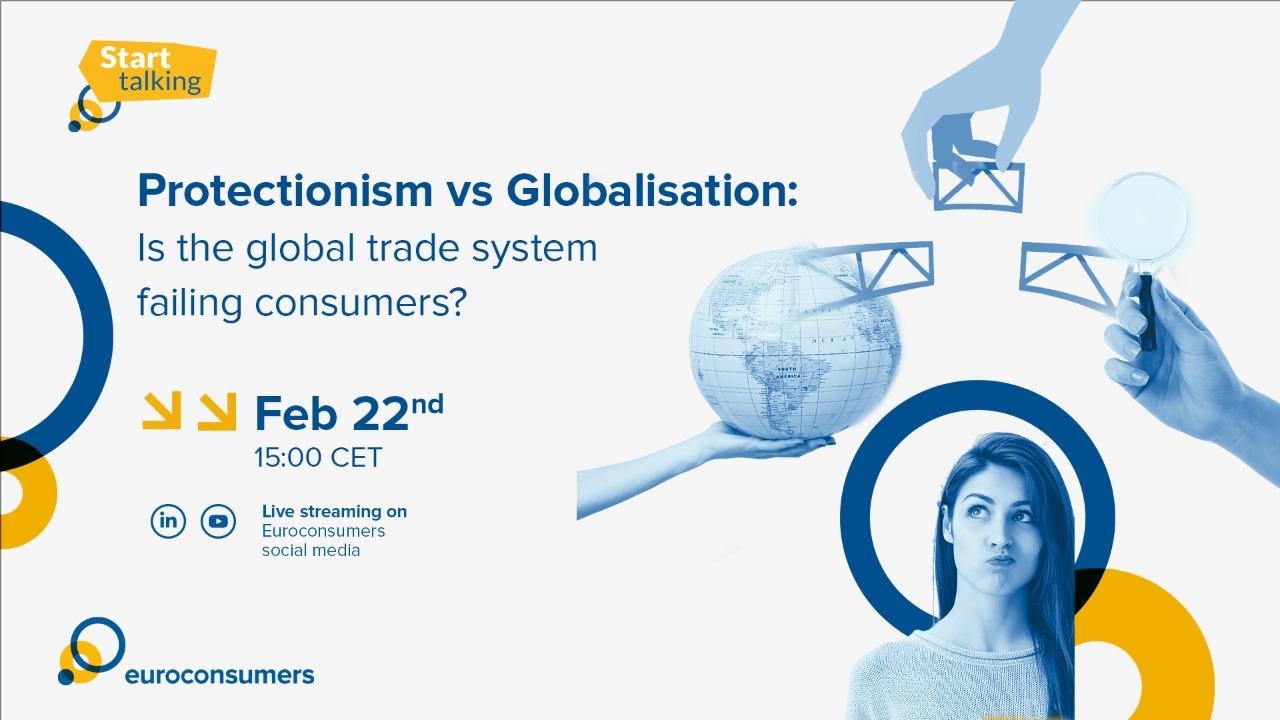Consumers rely on global trade and supply networks to get their daily bread, medicines, clothes, furniture, vehicles, fuel and personal tech. Globalization is such an inherent part of consumer markets that few of us give it any thought – until crisis hits.
The impacts of trade agreements and their relationship to wider policy goals are in the headlines. They are adding to the economic insecurity of a period which has seen energy price surges push up inflation and stifle growth. Farmers are blocking roads in France, Greece, Germany, Portugal and Poland partly in protest at cheaper food imports coming from countries who aren’t subject to the EU’s strict agricultural and climate related regulations.
Anger is being directed in particular at the trade deal under negotiation with Mercosur countries in South America which could see cheaper imports of meat, grain and sugar undercutting EU homegrown product prices.
And a battle for supremacy in Electric Vehicles markets, with their guaranteed market of millions of consumers worldwide has been rumbling for a while. Measures from the Biden administration to reinvigorate the post-covid economy focused on generous subsidies for the automotive industry to encourage production, profit and of course jobs in the EV sector. Great for American business and consumers, but how will the impacts be felt by manufacturers and consumers in the EU?
It feels as if the economic openness fostered by the WTO has been slowly replaced with mistrust and fear about the economic, political and security advantage that trade in digital tech-powered goods like EVs or smartphones can give to rivals.
This has created a ‘new protectionism’ or ‘de-globalisation’ marked by a tendency to respond to such shifts in global trade outlook with similar protectionist subsidies at home. This approach also allows a stronger ‘economic security’ and guaranteed access to essential technology and services. With ongoing fears about major global conflicts this is both appealing and understandable. But where will this leave consumers?
Consumers purchasing a familiar product might not feel like part of a geopolitical and economic battleground, but there’s a lot going on behind the scenes that is affecting what they can buy at what price. We want to Start Talking about the need to give the consumer impact of the current global trade disruption proper attention.
During the webinar, our experts will explore two examples of some live trade challenges from all angles:
Case study 1: Electric Vehicles: climate, cars and competition
Covering: EU vs China and the US subsidies and impact on manufacturing, imports/exports and consumers; what trade flows and global supply chains are involved in EVs? Do consumers like and trust EVs from other countries? Are they loyal to home brands or open to novelty?
Case study 2: Food: farming, fertilizers and fighting back
Covering: EU farmers vs Mercasur, intra-European grain quota disputes, alarm over farm to fork requirements including leaving some land fallow and cutting fertiliser use. How do consumer demands for cheaper food in a cost-of-living crisis add to farmers’ trade worries?
In each case study, we’ll ask our participants to analyze how we got to this point, and what the impact on consumers now and in the future could be, with questions like:
- What are the benefits of global trade for consumers in this area?
- Where has trade struggled to deliver on wider, non-economic outcomes in this area?
- How could it be done in a way that delivers on economic targets and beyond, e.g. climate goals; SDGs; digital security; trust and good consumer outcomes?
- What are the political points at stake?
Participants:
- Lea Auffret, Senior International Affairs Policy Officer, BEUC (confirmed)
- Rodrigo Carcamo, Chief of the Technical Cooperation Section of UNCTAD’s Commodities Branch. (confirmed)
- Antonino Serra Cambaceres, ADELCO (a leading Argentinian consumer organisation) (confirmed)
- Harald Past, Head of International Trade and Taxation, EuroCommerce (confirmed)
EuroCommerce speaker
Harald Past
Head, International trade & Taxation

Harald heads the EuroCommerce activities on international trade and taxation matters. His mission is to facilitate trade for importing and exporting companies and to simplify the tax systems. Harald is Austrian and holds degrees from the University of Vienna.

